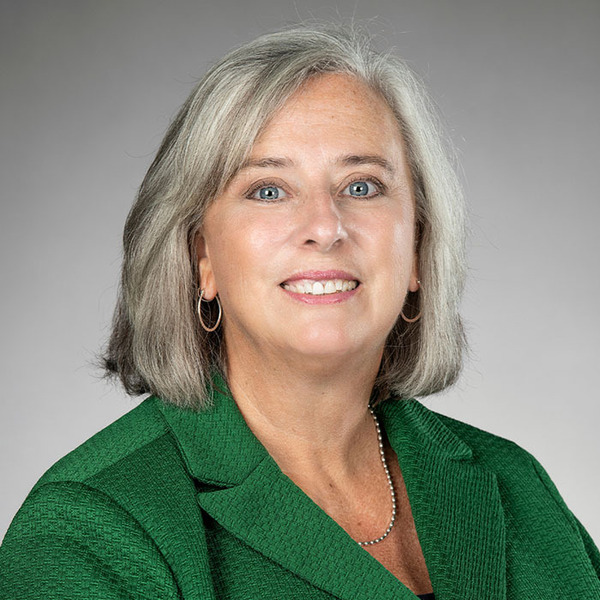Media Mentions: May 2024
April 2024 May 2024 June 2024
-

South Bend Tribune
'Learn every day': The Rev. John Jenkins reflects on legacy of 19 years leading Notre Dame
May 16, 2024
When the University of Notre Dame’s Board of Trustees first announced the Rev. John I. Jenkins would become its 17th president 20 years ago, the 50-year-old philosopher from Omaha, Neb., began thinking.
Originally published at news.nd.edu.
-

Fast Company
War takes a toll on the environment. Here’s how to change that
May 16, 2024
By Richard Marcantonio, an assistant professor of management and organization at the University of Notre Dame, and Josefina Echavarria Alvarez, a professor of the practice in international peace studies at the University of Notre Dame.
Originally published at news.nd.edu.
-
Biodiversity Loss Increases the Risk of Disease Outbreaks, Analysis Suggests
May 16, 2024
“It could mean that by modifying the environment, we increase the risks of future pandemics,” Jason Rohr, a co-author of the study and a biologist at the University of Notre Dame, tells the Washington Post’s Scott Dance.
Originally published at news.nd.edu.
-

NPR
What's worse for disease spread: animal loss, climate change or urbanization?
May 15, 2024
"There are limited resources for monitoring, controlling and managing infectious diseases," says Jason Rohr, a biologist at the University of Notre Dame and study co-author.
Originally published at news.nd.edu.
-
Wars cause widespread pollution and environmental damage − here’s how to address it in peace accords
May 14, 2024
By Richard Marcantonio, Assistant Professor of Management and Organization, and Josefina Echavarria Alvarez, Professor of the Practice in International Peace Studies, University of Notre Dame.
Originally published at news.nd.edu.
-
The world is obsessed with forests’ climate benefits. Here’s the problem.
May 10, 2024
Daniel Miller, a professor of environmental policy at the University of Notre Dame, said that a narrow focus on forests’ environmental benefits misses “a huge part of the story.” Miller’s research has shown that forests can help fight poverty, since the edible goods found in them are often available during times of the year when people might go hungry.
Originally published at news.nd.edu.
-

The Guardian
Biodiversity loss is biggest driver of infectious disease outbreaks, says study
May 09, 2024
“The take-home messages are that biodiversity loss, climate change and introduced species increase disease, whereas urbanisation decreases it,” said lead researcher Prof Jason Rohr from the University of Notre Dame in the US.
Originally published at news.nd.edu.
-
One way or another, new EPA rules will stop pollution from coal-fired emissions
May 09, 2024
“This is a regulation that on its face appears to be mostly about CCS,” said Emily Grubert, a civil engineer and environmental sociologist at the University of Notre Dame. But Grubert believes that the rule can be harnessed for other ends: “The goal of the climate movement is for it to be about plant retirement.”
Originally published at news.nd.edu.
-

phys.org
Big data helps determine what drives disease risk
May 09, 2024
Working with nearly 3,000 observations across almost 1,500 host-parasite combinations, researchers at the University of Notre Dame have found that biodiversity loss, chemical pollution, introduced species, and climate change, but not urbanization, are driving increases in infectious disease risk.
Originally published at news.nd.edu.
-

phys.org
Disadvantaged entrepreneurs often fear success, but new research can help
May 08, 2024
Michael H. Morris, a professor of the practice in the University of Notre Dame's Keough School and director of the Urban Poverty and Business Initiative, a program offered by the school's McKenna Center for Human Development and Global Business, is lead author of a journal article where these recommendations are outlined, as recently published in Business Horizons.
Originally published at news.nd.edu.
-
Outsmarting Ovarian Cancer
May 08, 2024
As an undergraduate student at Clemson University, Sharon Stack became fascinated with the study of the chemical processes and molecular interactions that take place inside living cells.
Originally published at news.nd.edu.
Mentions

Chemistry and Biochemistry
-

phys.org
Fruit fly model identifies key regulators behind organ development
May 07, 2024
Jeremiah Zartman, associate professor of chemical and biomolecular engineering at the University of Notre Dame, worked with a multidisciplinary research team that included collaborators from the University of California, Riverside to develop a fruit fly model to reverse engineer the mechanisms that generate organ tissue.
Originally published at news.nd.edu.
-

The New York Times
Environmental Changes Are Fueling Human, Animal and Plant Diseases, Study Finds
May 07, 2024
“It means that we’re likely picking up general biological patterns,” said Jason Rohr, an infectious disease ecologist at the University of Notre Dame and senior author of the study. “It suggests that there are similar sorts of mechanisms and processes that are likely occurring in plants, animals and humans.”
Originally published at news.nd.edu.